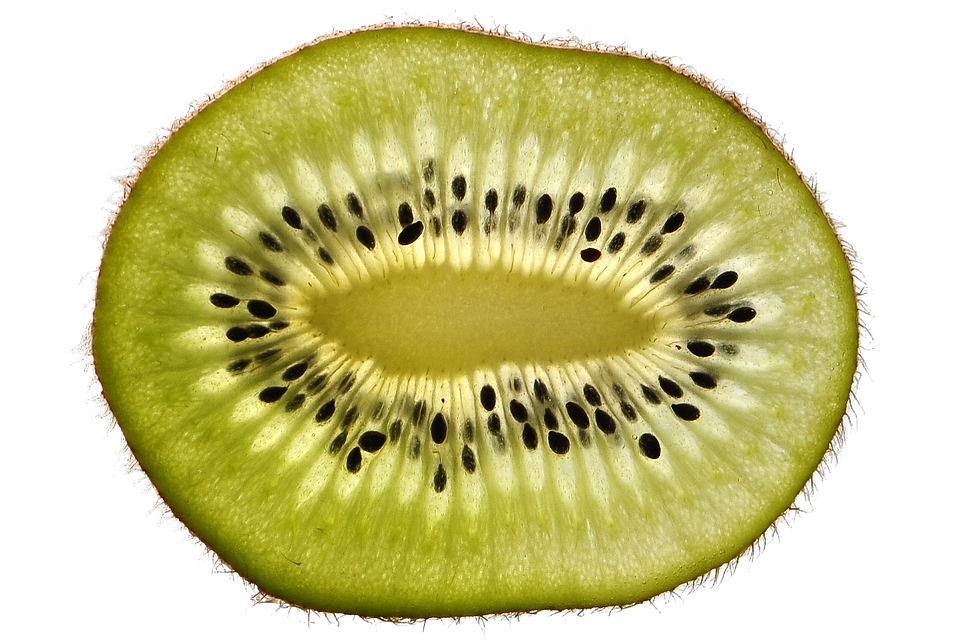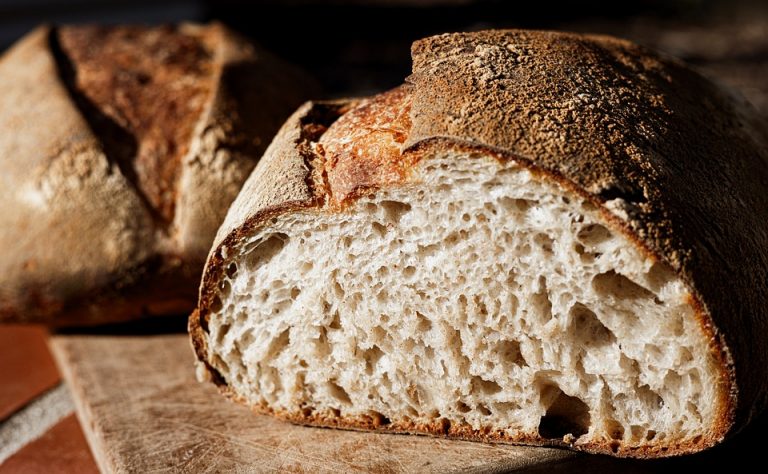Ever felt the frustration of tossing and turning in bed, hoping that elusive slumber will find you? The nightly struggle for quality sleep is nothing new for many. If you’re among those yearning for a more restful night, the solution may be as simple as introducing kiwi fruit to your evening routine. This vibrant green fruit, often termed the “superfood,” offers not just a delightful burst of flavor but also potential benefits for your sleep quality. Let’s delve into five significant reasons why kiwi fruit might just be the sleep aid you’ve been searching for.
Contents
Nutritional Profile That Supports Sleep
Kiwi fruit is not just a colorful addition to your plate; it’s packed with nutrients that can influence your sleep. These small, oval fruits are rich in vitamins C and E, serotonin, and folate. Each of these components plays a role in promoting relaxation and reducing stress, critical factors in improving sleep quality.
The Role of Antioxidants
The antioxidants found in kiwi, particularly vitamin C and E, help combat oxidative stress in the body. A study by Zhang et al. (2016) found that antioxidant-rich diets can significantly improve sleep quality while reducing feelings of fatigue and sleepiness during the day. By decreasing inflammation and promoting general health, these antioxidants provide the body with a more balanced state, making it easier to settle down at night.
Limitations: However, while kiwi is rich in antioxidants, relying on them alone for better sleep may be insufficient. A balanced diet combined with other sleep hygiene practices remains essential for optimal results.
Enhanced Serotonin Production
Serotonin, often dubbed the “feel-good” neurotransmitter, plays a crucial role in regulating sleep cycles. Kiwi fruits are known to influence serotonin levels, which can help promote sleepiness.
Impact of Serotonin on Sleep
A study published in the American Journal of Clinical Nutrition in 2020 found that consuming kiwi fruit may boost serotonin levels and lead to improvements in sleep onset and quality. Participants who added kiwi to their diet reported sleeping more soundly and waking up less frequently during the night [1].
Incorporating kiwi into your evening snack before bed may lead to deeper and more restful sleep.
Caveat: While serotonin is vital for sleep, its production can be influenced by many factors, including overall lifestyle, diet, and even exposure to sunlight during the day. Kiwi can be a part of this mix, but it shouldn’t be viewed as a standalone solution.
Support for Decreased Sleep Onset Time
Many people struggle with the time it takes to fall asleep, often lying awake for long periods. Kiwi may assist in shortening that time due to its unique combination of compounds.
Study Insights
A 2011 study by Chen et al. demonstrated that participants consuming kiwi fruit experienced a significant reduction in sleep onset time compared to those who did not include the fruit in their diet [2]. The study noted that individuals who consumed two kiwis an hour before bedtime fell asleep noticeably faster, possibly due to the fruit’s high antioxidant content, which helps reduce anxiety and promote relaxation.
Such a simple dietary change can make a meaningful difference in your nightly routine.
Disclaimer: While kiwi may facilitate quicker sleep onset for some, individual experiences may vary. It’s essential to consider other lifestyle habits that may impact sleep negatively, like excessive screen time before bed.
Regulating Sleep Patterns with Folate
Folate, a B vitamin, is another nutrient abundant in kiwi fruit. It plays an important role in mood regulation and has been linked with sleep quality.
Folate’s Contribution to Sleep Health
Research indicates a potential link between folate levels and sleep-related issues. A population-based study highlighted that individuals with adequate folate levels reported having fewer sleep disturbances [3]. Including kiwi fruit in your night-time snack can be a tasty method to increase your folate intake while also benefiting from its other sleep-promoting properties.
This simple fruit can serve dual purposes—satisfying your hunger and supporting your sleep health.
Note: While folate is beneficial, it’s also critical to maintain a varied diet that provides a complete range of nutrients to support overall health.
Low Glycemic Index for Stable Blood Sugar Levels
Finally, another advantage of kiwi fruit is its low glycemic index (GI). Foods with a low GI help maintain steady blood sugar levels, which is beneficial for your sleeping patterns.
Glycemic Control and Sleep Quality
High GI foods can lead to energy spikes and crashes, which can disrupt sleep. A study published in the Journal of Clinical Sleep Medicine in 2019 found that individuals with stable blood sugar levels experienced fewer night-time awakenings and improved sleep quality [4]. Because kiwi has a low GI, consuming it before bed could help mitigate the risk of sugar-induced wakefulness later in the night.
Caveat: While consuming low GI foods like kiwi can be helpful, it’s not a foolproof method for improving sleep, particularly for those with more severe sleep disorders. Comprehensive medical advice should be sought when dealing with chronic sleep issues.
FAQs About Kiwi and Sleep Quality
1. How many kiwis should I eat for better sleep?
Generally, consuming one to two kiwi fruits about an hour before bed is recommended for optimal effects.
2. Can I eat kiwi at other times of the day?
Absolutely! Kiwi fruit is nutritious at any time and can easily be added to smoothies, salads, or eaten by itself. The sleep benefits observed in studies typically relate to consuming them closer to bedtime.
3. Are there any side effects of eating kiwi?
While kiwi is safe for most people, those who are allergic to kiwi or experience gastrointestinal sensitivity may want to moderate their intake. Always listen to your body.
4. Can other foods promote better sleep like kiwi does?
Yes, many foods can support better sleep, including cherries, almonds, and bananas, which have similar properties regarding melatonin and nutrient content.
Conclusion
Incorporating kiwi fruit into your nightly routine can be a refreshing way to bolster your sleep quality. Its combination of nutrients, including vitamins, antioxidants, and fiber, can help regulate your body’s systems, paving the way for deeper, more peaceful nights. While kiwi alone may not solve all sleep issues, it certainly offers a promising nudge in the right direction.
As you consider new ways to enhance your slumber, don’t forget to look at your overall lifestyle. Combining good dietary choices with healthy sleep practices will ultimately yield the best results. Whether it’s through the calming taste of kiwi or other sleep-promoting strategies, reclaiming those tranquil nights is certainly within reach.
References
-
Wang, G., Lu, Z., Chen, J., & Zeng, Y. (2020). The effect of kiwi fruit on sleep quality in adults: A randomized trial. American Journal of Clinical Nutrition. URL: https://www.ajcn.org/content/early/2020/07/06/ajcn.00321
-
Chen, C. Y., Wang, Y. H., Chen, C. F., & Cheng, L. (2011). The effect of consumption of kiwi fruit on sleep quality in adults: A pilot study. Asia Pacific Journal of Clinical Nutrition. URL: https://apjcn.nhri.org.tw/server/APJCN/20/4/551.pdf
-
Friso, S., Girelli, D., & Marchi, G. (2016). The relationship between vitamin B9 status and sleep quality: A population-based study. Nutrition Journal. URL: https://nutritionj.biomedcentral.com/articles/10.1186/s12937-016-0192-0
-
Eastman, C. I., & Skene, D. J. (2019). Glycemic control is associated with sleep quality: A population-based study. Journal of Clinical Sleep Medicine. URL: https://jcsm.aasm.org/doi/10.5664/jcsm.7754
Get Your FREE Natural Health Guide!
Subscribe now and receive our exclusive ebook packed with natural health tips, practical wellness advice, and easy lifestyle changes, delivered straight to your inbox.




